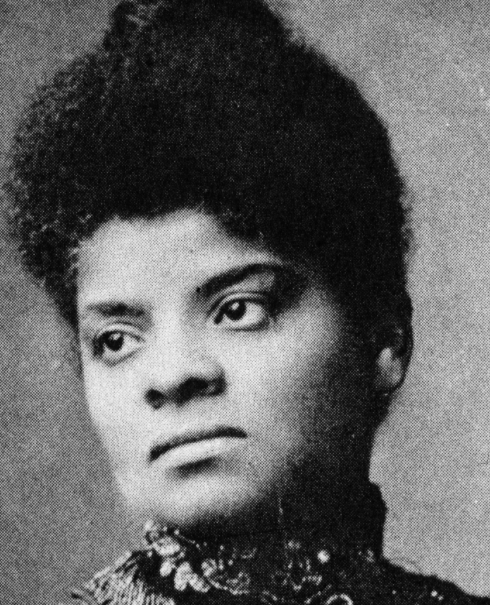Black History Month: Ida Wells
February 14, 2022
One of the lesser-known figures in Black history, Ida Wells was a respected journalist and activist who fought for civil rights and the suffrage movement.
Born on July 16, 1862 in Holly Springs, Mississippi, Ida’s parents were Elizabeth and James Wells who were both slaves in Mississippi. Her parents would have to work as a cook and a carpenter up until the end of the Civil War. After the war, they would become active in the Republican Party and support the education and freedom of many other former slaves. With her parents always making education a priority, Ida began studying at Rust University in Mississippi at 14. She would eventually be expelled from the school after getting into an argument with the university president.
Soon after being back home from Rust, both of Ida’s parents and her younger brother would die after a yellow fever outbreak. Now having to take care of the rest of her siblings, Ida moved the family to Memphis, Tennessee where she was able to get a job as a teacher after convincing the school she was 18. In 1884 while still living in Memphis Ida would file a lawsuit against a local train car company for unfair treatment. Although she had purchased a first-class ticket for the train ride, she was forced to move from first-class to the segregated car.
While she would win the case at the local level, the ruling would eventually be overturned by the Tennessee Supreme Court. This would only mark the first act of activism and rebellion that would highlight Ida’s life.
Ida eventually turned her attention to white mob violence after one of her friends was lynched for defending his place of business. She questioned other incidents of Black men being lynched and set out to investigate other lynchings. Ida would go on to publish her findings in a pamphlet and in articles for several newspapers. Ida would go on to lead an anti-lynching crusade in the U.S. throughout the 1890s, informing others and publishing articles on the matter in her own newspaper “The Memphis Free Speech.”
In 1891 Ida was fired from her job as a teacher at a segregated school after openly criticizing and speaking out against segregation in schools. Later in 1892, she would infuriate locals after publishing an expose on a recent lynching. After a mob formed and burned down her press office, Ida was forced to relocate again from Memphis to Chicago, Illinois. She would not be deterred from her work in the civil rights movement and in 1893 joined a group of other African Americans to boycott the World’s Columbian Exposition. They accused the exposition committee of prejudice against the Black community as they locked out African Americans and negatively portrayed them.
Ida would marry Ferdinand Barnett, a famed African American lawyer, and they would go on to have four children together. Throughout her life, Ida would always be able to balance activism and motherhood. During the 1890s, Ida would travel internationally to inform foreign audiences on lynchings. She would also confront many white women in the suffrage movement who ignored the racism against women of color. Because of this Ida would be ostracized from women’s suffrage groups in the U.S.
Even though she faced this discrimination, Ida would still remain active in the women’s rights movement with her creating the National Association of Colored Women’s Club in 1896. The group’s purpose was to address issues that dealt with women’s suffrage and civil rights. Later, Ida along with the group would also focus on urban reform in Chicago. In 1909, after a series of brutal attacks against the Black community in Illinois, Ida would help create the National Association for the Advancement of Colored People (NAACP). While being a founder, she would leave the organization as she thought it lacked action-based initiatives.
In 1913, Ida founded the Alpha Suffrage Club with the goal to organize women in Chicago to elect candidates for city positions who would best help the black community. As president of the club, she along with the other members of the club were invited to march in the 1913 Suffrage Parade in Washington, D.C. Despite being another suffrage organization, organizers of the parade asked all women of color to march at the back of the parade so as to not offend any of the white suffragists. Ida would refuse to go to the back of the parade and would march with a contingent of white women from Chicago.
The Alpha Suffrage Club and Ida would play a key role in the success of the women’s suffrage movement in Illinois, with the state passing the Illinois Equal Suffrage Act in June of 1913.
Ida Wells would die of kidney disease on March 25, 1931. She lived a fruitful life dedicated to fighting for civil rights and the rights of all women. In 2020 Ida was awarded a Pulitzer Prize “for her outstanding and courageous reporting on the horrific and vicious violence against African Americans during the era of lynching.” She was an outstanding woman who helped many causes and is an inspiration to all modern activists.
Some of her words to inspire any person in a fight against injustice, “The way to right wrongs is to turn the light of truth upon them.”





























